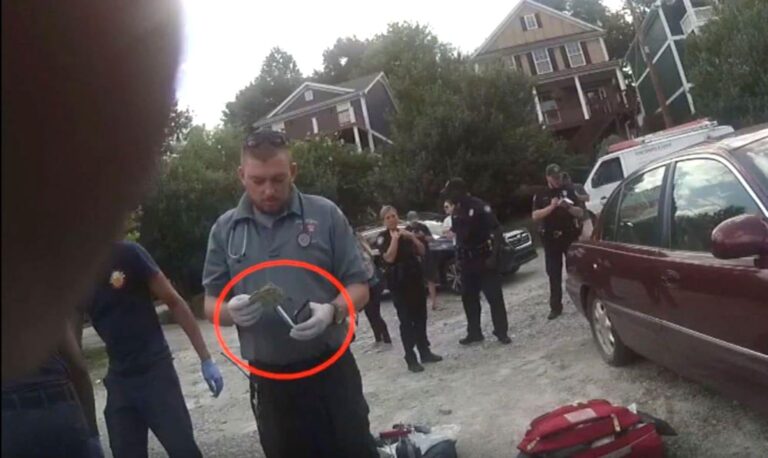A recent review has found that U.K. police mishandled the investigation into the fatal crash that killed teenager Harry Dunn, raising serious questions about law enforcement conduct in the case. The tragic accident, which occurred in 2019, involved an American diplomat’s spouse and sparked an international diplomatic dispute. The findings highlight significant procedural errors and have reignited calls for accountability and reform within the police force.
U.K. Police Fail to Properly Investigate Collision Leading to Teenager Harry Dunn’s Death
The recent review into the death of Harry Dunn has uncovered significant shortcomings in the U.K. police investigation following the fatal collision. Authorities were criticized for failing to secure crucial evidence promptly, including delayed forensic analysis and inadequate witness interview procedures. This mishandling not only impeded the progress of the case but also eroded public confidence in the police’s ability to manage high-profile incidents fairly and efficiently.
Specific investigation failures highlighted include:
- Delayed collection and preservation of CCTV footage near the crash site
- Insufficient coordination with international law enforcement agencies amid the complex diplomatic context
- Lapses in maintaining the integrity of the scene, which may have compromised critical forensic evidence
- Limited communication with the Dunn family regarding ongoing investigative steps
| Investigation Aspect | Findings |
|---|---|
| Evidence Collection | Delayed and incomplete |
| Interagency Collaboration | Insufficient, affecting case progress |
| Family Communication | Lacked transparency and updates |
Review Exposes Critical Errors in Evidence Handling and Communication by Authorities
In a startling revelation, the recent review has uncovered numerous lapses by U.K. police in handling the evidence related to the tragic crash that claimed the life of teenager Harry Dunn. Investigators noted that crucial evidence was either misplaced or mishandled, significantly impairing the investigation’s integrity. Furthermore, communication breakdowns between different departments and with the victim’s family exacerbated tensions, leading to widespread public frustration and skepticism about the authorities’ competence in this high-profile case.
Key findings include:
- Failure to secure the crash scene immediately, resulting in contamination of physical evidence.
- Inadequate documentation, with missing or inconsistent records related to witness statements and forensic analysis.
- Poor coordination between local police, diplomatic entities, and investigative units.
- Delayed and insufficient communication with the Dunn family, which prolonged uncertainty and emotional distress.
| Aspect | Issue Identified | Impact |
|---|---|---|
| Evidence Collection | Incomplete chain of custody | Compromised forensic reliability |
| Witness Interviews | Contradictory statements undocumented | Hindered clarity on crash circumstances |
| Inter-agency Communication | Delayed information relay | Investigation setbacks and confusion |
Calls for Reform Urge Enhanced Accountability and Transparency in Future Police Crash Inquiries
In the wake of the damning review, experts and advocacy groups have intensified demands for sweeping changes in how police forces conduct investigations into fatal crashes. The mishandling of Harry Dunn’s case has spotlighted systemic weaknesses, notably a lack of rigorous oversight and transparency. Critics argue that the exclusion of independent observers and delayed disclosure of evidence undermine public confidence and hinder justice. Calls emphasize the necessity of clear protocols and external audits to prevent future miscarriages and ensure inquiries are both thorough and impartial.
Key reform proposals include:
- Mandatory involvement of independent review panels in all fatal crash investigations
- Real-time public updates on inquiry progress and findings
- Enhanced training programs to equip officers with investigative best practices
- Implementation of standardized transparency reports published annually
The following table summarizes the critical areas where the review identified shortcomings and the recommended actions to address them:
| Area of Concern | Issue Identified | Recommended Reform |
|---|---|---|
| Evidence Handling | Delayed disclosure of key materials | Real-time evidence logging and disclosure systems |
| Investigator Impartiality | Lack of independent oversight | Mandatory inclusion of external reviewers |
| Public Communication | Insufficient updates and transparency | Regular public briefings and accessible reports |
| Training & Protocols | Inconsistent investigative standards | Standardized national guidelines and training |
In Retrospect
The review’s findings underscore significant failings in the handling of the Harry Dunn case, prompting calls for greater accountability and reforms within U.K. police procedures. As the family continues to seek justice, this case serves as a stark reminder of the critical importance of thorough and transparent investigations in incidents involving loss of life. Authorities have pledged to address the identified shortcomings, but public scrutiny remains intense as efforts to restore trust in law enforcement persist.




